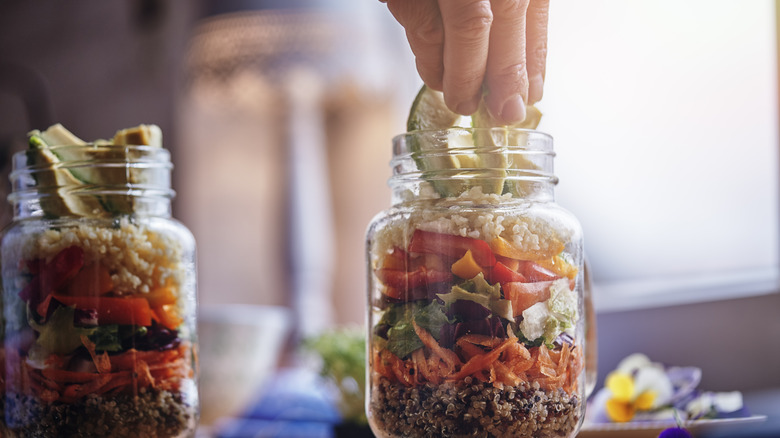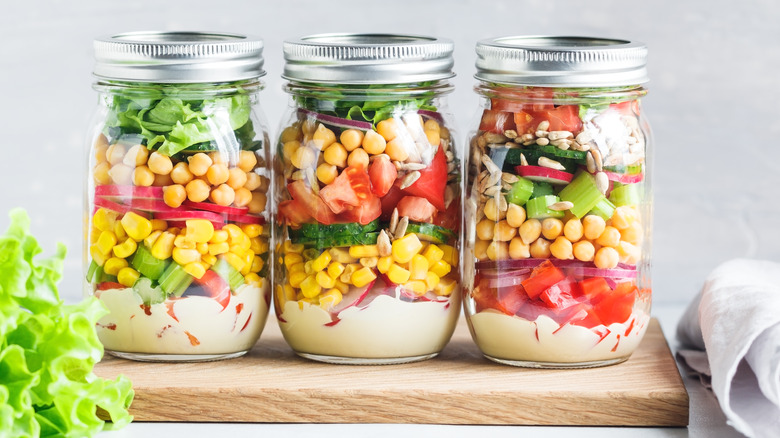Salad Jars Are The Meal-Prep Hack For Total Freshness
For those who love a fresh snack or lunch but are constantly on the go, salad jars seem like the perfect solution. You can enjoy that fresh lettuce, kale, and spinach in a travel-size container that's relatively mess-free. While salad jars won't necessarily ensure a fresher salad, they do last a while, making them easy to meal prep for the frantic work week.
Salad jars are just that — salad that's been layered in a mason jar. While there's been no official word on how long salads stay fresh in the jars, those who use this method revealed their salads typically last between four to five days and up to a week in some cases. It really depends on the ingredients that you are layering in as well as how fresh they are, but this estimate seems on par with how long lettuce typically lasts in general. According to the U.S. Food & Drug Administration, bagged lettuce lasts safely between 12 to 16 days in the fridge. However, for quality control, lettuce typically lasts up to a week in a storage container in the fridge.
That means it should be easy, as long as you don't look too far into the future, to plan out your meals for the week. Prep work for these salads can all be accomplished in one day and stored in the fridge.
Tips to make your salad jar
Every jar should include all your salad components, one layer at a time. You will want to be careful about packing your jar too full as this will make mixing the salad more difficult and could affect properly securing the lid. For fresher results, you may want to consider vacuum sealing the lid, using a vacuum seal machine. However, this won't be necessary if you're planning an immediate snack.
When creating a salad jar, you always want to put the dressing down first. This allows you to create a base at the bottom of the jar which you can then mix up with your other ingredients by shaking the jar. As far as salad dressing goes, generally, it seems like oil-based dressings work better than thicker dressings, as they're lighter and easier to mix throughout the jar. Thicker dressings have a tendency to cling to the bottom of the jar, leading to a drier salad, which no one wants.
If you're not an experienced salad maker, it may be better to stick to a recipe to ensure that all of your ingredients blend well with one another. If you're adding protein, keep in mind that it may have a different shelf life. For instance, according to the USDA, cooked chicken only lasts up to four days in the fridge.

